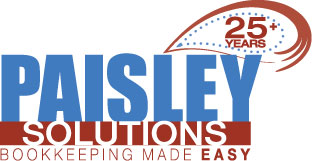5 Small Business Expenses You Can Write Off Your Taxes
Small businesses qualify for tax deductions on expenses related or necessary to their business. These write-offs help decrease a business’s taxable income and, subsequently, lower the amount of money owed to the government. A comprehensive bookkeeping system and in-depth knowledge of taxable expenses are essential to maximizing deductions for your business. An experienced bookkeeper will track your expenses throughout the year to ensure you are ready for tax season. Regardless of how you decide to maintain your books, you should consult a certified public accountant (CPA) about any tax-related decisions.
Tax-deductible Expenses for Small Businesses
1. Business Meals and Travel Expenses
Work-related travel expenses can be fully deducted on your taxes, including airfare, hotel, rental cars, and other associated costs. A percentage of food and drink purchases also qualify as deductible business incidentals. Certain criteria must be met for travel and meal expenses to be eligible for a write-off, though. For example, an owner or employee must be at the meal for it to be deductible. Additionally, detailed information about the expense and official documentation like receipts and mileage logs need to be presented to receive the tax deduction.
2. Advertising and Promotion
Marketing materials and services are costly and can be one of the biggest expenses for small businesses. Luckily, purchasing print or digital ad space, printing business cards, flyers, or brochures, hiring an agency or consultant, and any other cost associated with promoting your business is deductible.
3. Professional Services
Any service fees necessary to the operation of your business are tax-deductible expenditures. Eligible outsourced professional services include bookkeeping, accounting, and legal services. Software used for bookkeeping or accounting can also be written off.
Since qualifying for tax deductions requires detailed records of every claim, bookkeepers can significantly improve the process of filing your taxes by keeping your finances in order throughout the year. This way, you will know what you can write off as a business expense to maximize your deductions and make more intelligent financial decisions.

4. Home Office Expenses
Work-from-home situations are more common than ever before thanks to today’s technology. Fortunately, home office expenses can partially be deducted from your income. There are a number of stipulations to this, however, so it is highly recommended that you speak to a tax professional before claiming this deduction on your taxes.
5. Education, Subscriptions, and More
There are a host of other business-related costs that are deductible for tax purposes. Education, training, memberships, and subscriptions all add value to your business and, consequently, qualify you for tax deductions. Specifically, valid business expenses in these areas include:
- Education reimbursement initiatives for employees
- Training seminars and webinars
- Memberships to professional, industry-specific organizations
- Subscriptions to trade media like magazines, newsletters, or technical journals
More tax deductions are available to small businesses and plenty of nuances exist on the aforementioned ones. In the end, working with an experienced bookkeeper will save you time, frustration, and, most importantly, money. Contact Paisley Solutions today for a free consultation!
